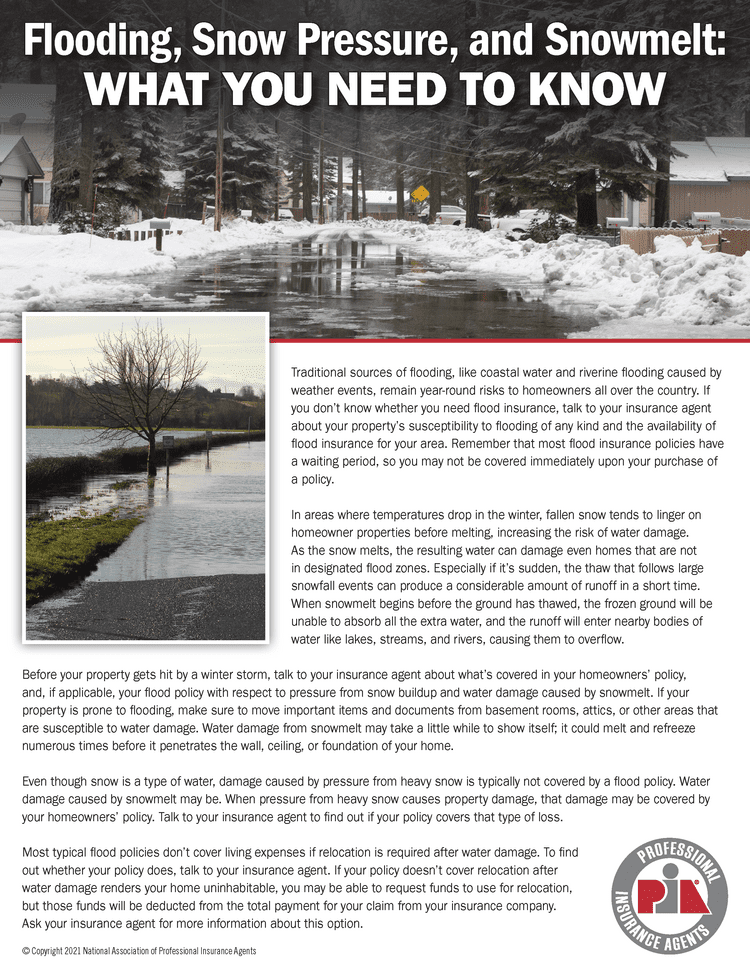
Traditional sources of flooding, like coastal water and riverine flooding caused by weather events, remain year-round risks to homeowners all over the country. If you don’t know whether you need flood insurance, talk to your insurance agent about your property’s susceptibility to flooding of any kind and the availability of flood insurance for your area. Remember that most flood insurance policies have a waiting period, so you may not be covered immediately upon your purchase of a policy.
In areas where temperatures drop in the winter, fallen snow tends to linger on homeowner properties before melting, increasing the risk of water damage. As the snow melts, the resulting water can damage even homes that are not in designated flood zones. Especially if it’s sudden, the thaw that follows large snowfall events can produce a considerable amount of runoff in a short time. When snowmelt begins before the ground has thawed, the frozen ground will be unable to absorb all the extra water, and the runoff will enter nearby bodies of water like lakes, streams, and rivers, causing them to overflow.
Before your property gets hit by a winter storm, talk to your insurance agent about what’s covered in your homeowners’ policy, and, if applicable, your flood policy with respect to pressure from snow buildup and water damage caused by snowmelt. If your property is prone to flooding, make sure to move important items and documents from basement rooms, attics, or other areas that are susceptible to water damage. Water damage from snowmelt may take a little while to show itself; it could melt and refreeze numerous times before it penetrates the wall, ceiling, or foundation of your home.
Even though snow is a type of water, damage caused by pressure from heavy snow is typically not covered by a flood policy. Water damage caused by snowmelt may be. When pressure from heavy snow causes property damage, that damage may be covered by your homeowners’ policy. Talk to your insurance agent to find out if your policy covers that type of loss.
Most typical flood policies don’t cover living expenses if relocation is required after water damage. To find out whether your policy does, talk to your insurance agent. If your policy doesn’t cover relocation after water damage renders your home uninhabitable, you may be able to request funds to use for relocation, but those funds will be deducted from the total payment for your claim from your insurance company. Ask your insurance agent for more information about this option.
Your Friends In The Insurance Business at Midland's Ieuter Insurance Group can answer your insurance coverage questions.
For all your insurance needs, visit us at https://www.ieuter.com
Ieuter Insurance Group - 414 Townsend St Midland MI 48640
(989) 487-1758
Social accounts:
https://www.facebook.com/ieuterinsurancegroup/
https://twitter.com/ieuterinsurance
https://www.linkedin.com/company/ieuter-insurance-group/
https://www.instagram.com/ieuterinsurance/
